If you live in Southeast Asia, or any other developing area of the world, you are bound to stumble across markets pushing some.. questionable merchandise..

Being a father of three, I always have to stay vigilant when out hunting down the latest toy craze items to hit the xmas or birthday lists lest I return home to dashed dreams and a Tickle-me Elbow.


But it's not just consumer parents of plaything-obsessed preschoolers that need to be on guard. Those in the market for a new wardrobe should also take heed. The knock off industry runs the gamut on everything from renegade Rolexes to bogus boxershorts.
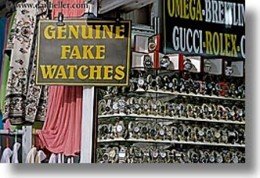

Perhaps, for a second, you think that the tomfoolery is limited to physical merch found in department stores. "They wouldn't dare to cook up something for a connoisseur of fine cuisine!" Well...I'd hate to burst your bubble, but.. think again!

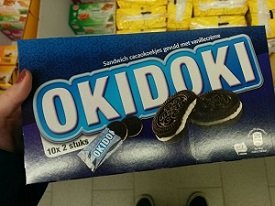


Sights like these are prevalent in open-air market stalls strewn across pulsating city hubs the world over. And while they are good for a laugh (you're most likely not going to wander into a Sunbucks looking for a Venti Mocha Frappuccino), their existence underlays a more deep-seated issue with how society operates.
The fact is that developing countries are prone to opportunists (mostly those who take power and/or come from wealthy backgrounds) and are usually rife with corruption from the TOP down.
The wealth gets hoarded at the top with very little if any trickle down resulting in a significant socioeconomic rift between those in charge and those at the bottom.
More and more of the country's wealth gets reallocated to a smaller and smaller number of uber-rich. This leaves less and less for the vast majority, who must scamper to come up with whatever they can for themselves.
Add to that the west-influenced, consumer-driven media, which flaunts fame and fortune at every corner. People will do pretty much anything at a chance to get in on the action and make a quick buck.
Considering this, it's not hard to understand why, by looking from the outside in at a highly successful product or brand, there are attempts to capitalize on that success..
But what's missed by the scammers (and probably misunderstood by a great number of consumers) is that it's not really the product that people are buying but a promise.. an agreement... I'll buy your product and you'll give me a better quality of life.
People are willing to pay the price for a chance at a better, more comfortable life.
What makes a company successful is when they deliver on their end of the bargain.
 src
src
So, what's the human cost? What does a fake product do?
I believe it hacks that promise (The one about getting some value towards a better life in exchange) and fails to make good on the implicit deal made among consumer/producer.
The imitation being peddled is not of any quality because it is not made with any. It's made quickly and cheaply in hopes to ride the coat-tails of others and swindle one-time buyers. The whole thing leaves everyone feeling empty and hollow.
like how you felt when the hooker you slept with turned out to be a ladyboy..
WE become counterfeit without even realizing it..
 src
src While I'm not condoning shady practices, it's hard to blame the grifters.
The odds seem stacked against those born in a country that may be developing a bit late in the game.
Indeed, corruption, oversight and negligence of government and law enforcement officers in these countries enable the phony product practice to be so commonplace.
But does it have to be..?

Until there's a serious overhaul from the top down with an emphasis on transparency and perhaps a system of checks and balances instituted in government, it seems unlikely that things will deviate from the status quo any time soon.
We could also start campaigns to promote education and basic civil rights whilst actively constructing a free and independent media watchdog, but I'm not going to hold my breath..
In the meantime, I think I'll go shopping for a new pair of well-deserved Chuby Chaps and maybe even a Heroes Assemble set for my kid..
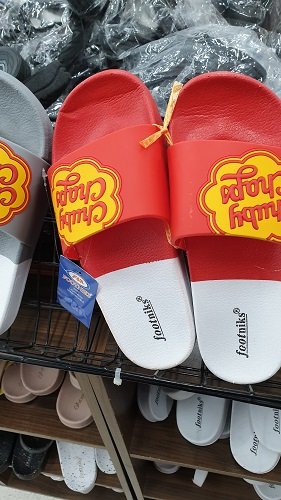
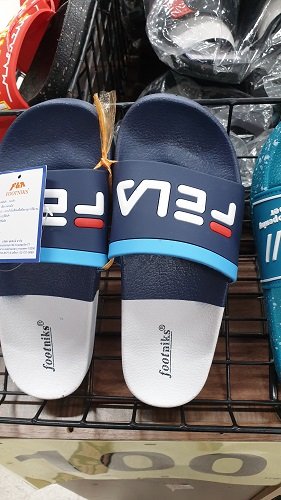
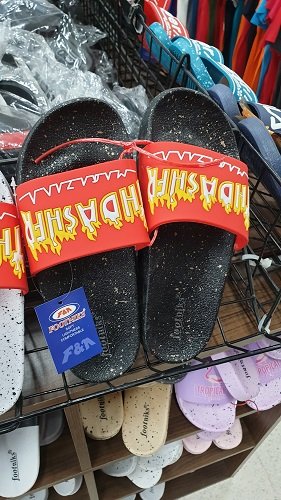
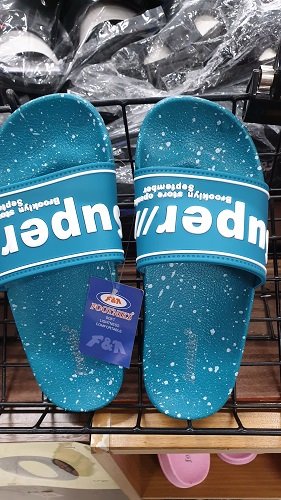

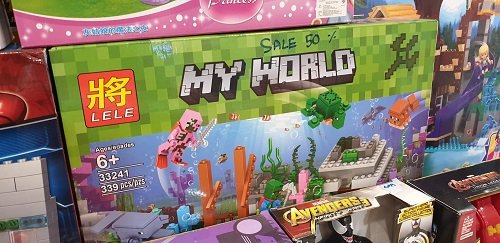


PSA: While the products I chose to show here are clearly outrageous rip-offs chosen for humor-value, there are a whole hoard of sellers that have pretty realistic counterfeits. Please be smart when shopping on the street (or online even). If it seems too good to be true, it definitely is!


